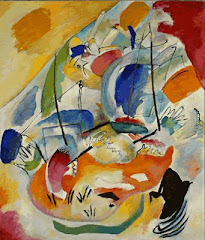
So, I have recently been watching a couple of episodes a day of The Sopranos. It is a particularly fascinating show from the point of view of psychology and psychotherapy. Before I went to study in San Francisco, I remember finding it psychologically unconvincing. I didn't believe that people who could be so loving in some areas of their lives, could also be so brutally violent in others. I have since reformed that view; I no longer find it psychologically unconvincing. That is something I learned through one of my patients last year.
I was working at a rehabilitation facility exclusively for ex convicts and parolees. In order to qualify for therapy, they had to be 'dually diagnosed' - ie have a mental health disorder as well as an addiction disorder. One of my patients was a South Sea Islander whom I shall call V.
V was born on an island with a proud heritage of producing excellent rugby players. He certainly looked the part: almost as wide as he was tall, enormous shoulders and a bull neck, only one tooth remaining, hands that could crush skulls, and a thick head of shorn hair for his 55 years. He had come to America in his late teens and had been an alcoholic for the last thirty years, of which twenty had been spent in and out of prison.
I was V's first ever therapist, and he was probably my tenth ever patient. When I was first introduced to him in the dank corridor of the facility where he was an inpatient, he looked rather frightened. We shook hands - he nearly crushed mine - and I asked him whether he had any interest in rugby. His face immediately lit up. Not many people in California are interested in rugby, least of all in the female-dominated, touchy-feely (not literally - the Ethics Code would frown...) mental health profession.
V smiled broadly, his single tooth glinting like the Matterhorn on a bright morning.
'Rugby's my game, man,' he stated proudly.
We spent the whole first session talking about rugby, something he hadn't been able to do for many years. I was able to reel out the names of his national heroes - Tana Umaga, Frank Bunce, Tuigamala - who were also the heroes of my childhood and adolescence. And thus, somewhat unconventionally, a solid therapeutic alliance was established.
Over the next few months, V told me about his drinking problems, his marital problems, and his sense of shame about having wasted his life. From the very beginning, I liked him enormously. He struck me as very gentle, conscientious, extremely honest, and clearly wracked by guilt on a deep level.
But the things he told me!
He had been arrested on numerous occasions for violence against every one of his three wives. He could never tell me very much about it since their arguments always happened when he was drunk.
He first went to prison following an altercation with a friend of his. V had joined the merchant marine in his early twenties. As a result, he was often away from his wife for months at a time. After one such absence, his wife informed him that while he had been away she had received anonymous phone calls from a stalker suggesting a sexual rendezvous. To celebrate his return, V hosted a bbq at his house and invited his best friends, many of whom his wife barely knew. However, in the kitchen she told him that she clearly recognized the voice of one of his friends, and that he was the anonymous stalker who kept propositioning her over the phone.
V drunk heavily at the bbq. He made sure that his friend stayed until the end, then he suggested going to a local bar. When V's friend went to the bathroom, V took the autographed baseball bat which was displayed on the wall, followed his friend, and proceeded to beat him to a pulp in the toilet. His friend died in hospital of his head injuries.
V was given a reduced sentence of 6 years, I think. However, this kept being extended since V frequently ended up in fights. He was in a high security, level-4 prison where gang culture dictates the norms. V was told that certain areas of the yard were for blacks, other areas of the yard were for Mexicans. 'That's bullshit,' thought V, 'I'm a South Sea Islander, so I'll go wherever I please.' Beef with the Mexicans soon followed.
It was arranged that V would fight the Mexican champ. The following day, V and the Mexican both went through the security gate into the yard with butterfly knives hidden up their rectums. The butterfly knife was attached to a piece of string for 'ease' of retrieval. While the other Mexicans created a diversion, V and the champ went at it. 'He shanked me in the ribs,' said V, 'but I got him in the neck.' Another 6 years.
Interestingly, when V told me the stories of the fights he'd had, there was no showing off, no pride. There were other patients at the facility who walked with a cocky swagger, pumped iron, liked to brag about how tough they were, and whose ostentatious displays of jewelry and gold chains were intended to attest to that fact. V kept himself to himself and consistently sought to avoid trouble of any sort. And yet, even at 55 years of age, and with a pronounced limp, V could have torn the throat out of any one of them using just his single tooth.
However, what V was proud of was his garden. He had managed to requisition an overgrown corner of the parking area to turn into a small vegetable patch. By clearing away all the detritus and digging up the area, he had managed to win a little more ground. At the end of every weekly session, I would accompany him outside to see how his plants were coming along. He had sown tomatoes, carrots, herbs of all kinds, strawberries and sunflowers. He tended them everyday and the speed with which they grew bore testament to the care he lavished upon them.
On one of the first shy days of spring, while we were standing in the sunshine admiring the garden, V said: 'The tomatoes are struggling a bit. The birds keep eating them.'
I replied with a therapist's knee-jerk response, reflecting the emotion, or reflecting what I assumed to be the emotion: 'That must be very annoying,' I said.
V thought for a moment, then he said: 'Well, it is a little annoying, but I don't mind so long as they're not greedy. The birds have to eat too.'
Wow, I thought to myself. Who would have thought that a violent murderer could be capable of such moments of transcendent generosity of spirit, far beyond most enlightened souls, let alone most normal people.
What have I learnt from this? Well, firstly that I shouldn't be so quick to make assumptions. And secondly, that there is much less consistency in the world than I used to believe. Now I see that everywhere. America is the country of freedom, of liberal gun laws, of unrestricted commercialism. And yet it is illegal to sit on a beach after dark, or to sip a glass of wine in an empty park. Switzerland is a country of precision timekeeping, punitive speeding fines and women's suffrage only since 1971. And yet I remember a shop in Zurich where it was possible to buy most recreational drugs over the counter.
Consistency is something that humans endlessly expect. But in fact there is no reason why things should be consistent. We create ourselves and the world anew every moment. That, I think, is an existential perspective.







